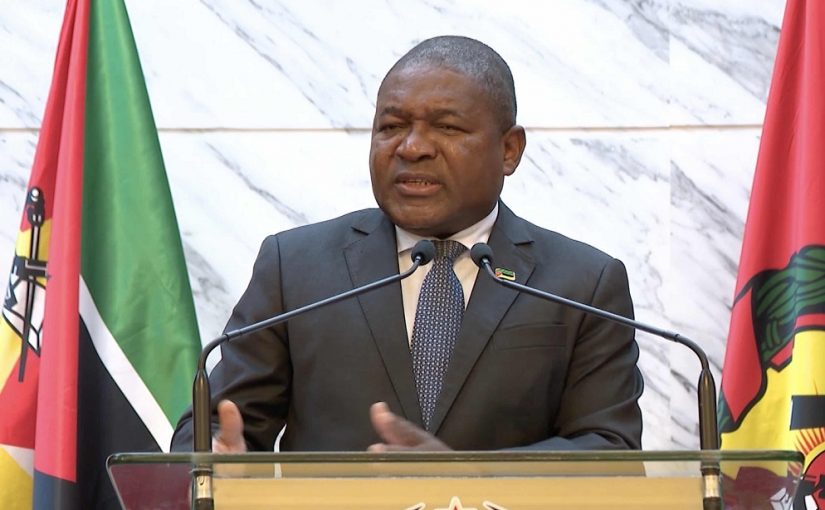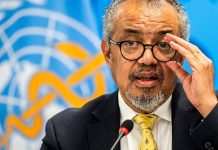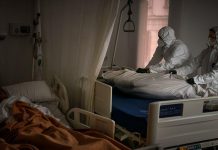AfricaPress-mozambique: Mozambican President Filipe Nyusi, addressing the nation on Thursday night, warned that the third wave of the Covid-19 pandemic is now striking the country, and it could prove “more violent and more severe than the first or second waves”.
He warned that in some countries faced with the third wave, the health system had collapsed because of lack of beds for Covid-19 patients. All efforts should be made to ensure that does not happen in Mozambique, and “to prevent the third wave from spreading across the entire country”.
Of particular concern was the western province of Tete, second only to Maputo in terms of number of cases.
Tete is where the health system is under most strain. “We don’t have many beds in Tete”, Nyusi said, and so the Ministry of Health wants to turn the new hospital that he inaugurated in the Chingodzi neighbourhood of Tete city in late May, into a Covid-19 treatment centre.
Beds alone are not enough. “We don’t have many health staff in Tete either”, said the President.
Mozambique is made more vulnerable by the appearance of multiple strains of the coronavirus that causes Covid-19, and by the low level of vaccination. To date less than two per cent of the target figure of 16 million adults have been vaccinated. There is a worldwide shortage of covid-19 vaccines – particularly since the major supplier, the Serum Institute of India, has stopped exporting vaccines because of the Covid-19 disaster in India itself.
Nyusi assured his audience that the government is working to acquire more vaccines. But while these efforts are under way, it was crucial that citizens should follow strictly all the preventive measures against Covid-19 recommended by the health authorities.
“The best vaccine, which is within the reach of all of us, is collective respect for the measures of prevention”, stressed Nyusi. “The vaccine available to you is not to leave your home unnecessarily, to practice social distancing, to wash your hands and to wear a face mask”.
The virus was now spreading rapidly precisely because many people had neglected preventive measures. “We have forgotten the disaster that struck us in January and February (at the height of the second wave)”, Nyusi said.
When the government relaxed some of the Covid-19 restrictions in May, “many people thought this meant the end of the pandemic”, he added.
There had been a general, and sometimes deliberate, neglect of preventive measures. Parties and other social events had been held attended by hundreds of people, in blatant violation of the government decrees on the pandemic.
Similarly, the limitations on the number of people allowed to attend weddings, funerals and religious services had been ignored. Businesses had also ignored the social distancing guidelines, as could be seen by the crowds that gathered outside banks or bakeries.
Nyusi was angered that so many people had stopped wearing masks. He had visited the northern port of Nacala last week and found that “nobody is wearing masks!”
A frequent excuse given was “I put the mask in my pocket”. But anyone who does that, Nyusi said, “is just transferring the virus to his pocket”.
“We have avoided the collapse of the health system, we successfully reopened the schools, and we are gradually reopening the economy”, he continued – but all these gains could be undone by the third wave, unless citizens took prevention seriously.
He had harsh words for the police and for other state bodies, such as the National Inspectorate of Economic Activities (INAE), who are supposed to enforce the Covid-19 restrictive measures. He accused them of “falling asleep” because they had not implemented the government’s decisions. He added that he was not asking the police to beat up citizens, but he did expect them to hold offenders responsible for their actions.
Nyusi told INAE, the police and other authorities “It is your responsibility to prevent a small group of unthinking and irresponsible individuals from putting at risk your lives, and the lives of all Mozambicans”.
Nyusi announced that existing restrictive measures will remain in place, but in some areas will be tightened. Thus the overnight curfew in force in most cities and towns will be extended by an hour. The curfew will start at 22.00 instead of 23.00, and last until 04.00.
The government once again shut the beaches. No sports, games or parties will be allowed on any beach, although citizens will be allowed to walk on the beaches.
The measures announced by Nyusi once again close down theatres, cultural centres and the like. Any exception to this rule must be authorised by the Ministry of Justice. Nyusi said this measure was because, over the past month, large crowds had attended events in these places.
Attendance allowed at religious services or any other meeting has been cut to 40 in enclosed spaces and to 80 in the open.
Restaurants must now close no later than 20.00, rather than the previous limit of 21.00. Bottle stores must close by 15.00 rather than 17.00. Shopping centres may open from 09.00 to 18.00 on weekdays, but must close by 15.00 on Sundays and public holidays.
Nyusi said that, to avoid queues, government offices will only attend to citizens, for such matters as issuing documents, if they book in advance.
He also encouraged public and private institutions to allow their staff to work from home where possible.
“Let us adopt the new ways of living”, he declared. “Let us embrace technology to solve the problem of Covid-19’.






